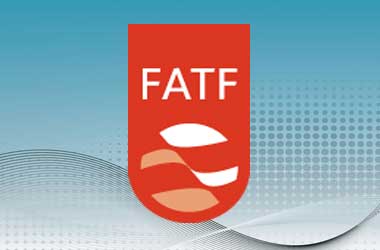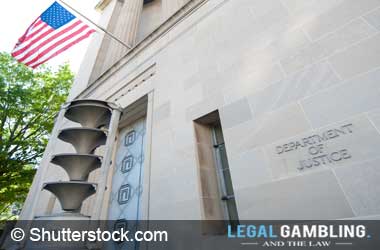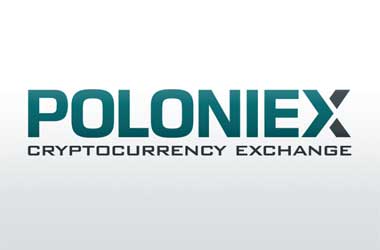 UFC superstar and former lightweight champion Jonathan Jones completed his hearing with the California State Athletic Commission (CSAC) on 27th Feb and received a $205000 fine along with having his license suspended.
UFC superstar and former lightweight champion Jonathan Jones completed his hearing with the California State Athletic Commission (CSAC) on 27th Feb and received a $205000 fine along with having his license suspended.
Jones who is considered by many to be the Greatest Of All Time (GOAT) regained his lightweight championship after defeating Daniel Cormier at UFC 214 in Anaheim, California in July 2017. However, Jones failed a United States Anti-Doping Agency (USADA) drug test which found Turinabol – an anabolic steroid in his urine sample. As a result, Jones was suspended and was stripped of his belt by the UFC and the fight with Cormier was ruled a no-contest.
CSAC Asks Jones To Take Responsibility
Jones has maintained that he did not take steroids deliberately and claims that it could have been a tainted supplement. This is not the first time that Jones has been pulled up by USADA for steroids. The last time Jones claimed that it was due to an over the counter pill (Cialis) which was tainted and that caused him to fail his drug test.
CSAC commissioner Martha Shen-Urquidez came down hard on Jones and said the commission wasn’t concerned as to whether he used steroids intentionally or not. The end result was that steroids were found in his system and for that he had to take full responsibility. CSAC decided to fine Jones 40 percent of his winnings and suspend his license till USADA finishes their hearing and makes a decision on his MMA career. Once that decision is made, CSAC will then decide when it will reinstate his license.
Jones Continues To Swear Innocence
Jones testified before the commission that he was aware of the perception surrounding his career. Jones would undoubtedly be the GOAT but his life outside the Octagon has been filled with controversy – which has tarnished his image and MMA record.
In a statement, Jones said:
“Honestly, I put it on everything that is dear to me, everything that is dear to my soul, that I did not do steroids. In this situation, I swear on my heavenly father that I’m not wrong. When you say, ‘When you’re wrong, you’re wrong,’ I would 100 percent agree. I’ve always handled my punishments head on. But in this situation, I’m not wrong. I swear on anything.”
There is no indication as of now as to when USADA will have its final hearing. There are rumours that it will take place in March and that Jones could get a 12 month suspension – retroactive from July 2017 – which could mean Jones is back in the Octagon before the end of the year.
 The current Brazilian side are one of the favourites to win the World Cup under Tite this summer. The Selecao have arguably the most talented group of players they have had in a decade heading a World Cup.
The current Brazilian side are one of the favourites to win the World Cup under Tite this summer. The Selecao have arguably the most talented group of players they have had in a decade heading a World Cup.
The most talented and the poster boy of the Brazilian game is undoubtedly PSG striker Neymar. However, the 26-year-old experienced a massive setback on Sunday, as he sustained a metatarsal injury in the Parisians 3-0 win over Marseille. The forward was carried off the pitch on a stretcher and was visibly upset.
Father says he will be out for at least six weeks
There seems to be differing reports about the extent of the injury from various different corners. PSG boss Unai Emery has stated that the forward could be fit to face Real Madrid in the Champions League on March 6th, a tie which PSG trail 3-1 from the first leg in the Bernabeu.
However, Neymar’s father was more specific telling ESPN Brasil: “PSG know that they will not be able to count on Neymar for the upcoming matches: his treatment will last six to eight weeks, whether there is an operation or not,”
It seems there is slight confusion over the injury. However, if the forward is sidelined for six to eight weeks as his father has stated, then he will have very time to recover from the injury before the World Cup.
A big blow for Brazil, Neymar and the World Cup
Neymar is sure to be at the World Cup, unless he sustains another bad injury before June. However, he may not be fully fit for Russia 2018 and that would be a sad state of affairs for the player, his national team and the tournament itself. Neymar is box office, the sort of player who the fans pay good money to watch, even if he is rather theatrics at times when challenged for the ball.
The World Cup is the sort of tournament where fans want the best players in the world to feature and impress. While Neymar may be on the pitch, he may not be at pull pelt. That would be a shame because at 26 years old, he is at his peak. In four years’ time, at the next World Cup he may not be the same dynamic player.
Brazil ones to watch at World Cup 2018
Hopefully Neymar will recover and star for Brazil, as the Selecao have become many peoples second favourite team over the years in World Cup. The South American giants have produced some wonderful teams and players in recent history.
The 2018 vintage has the players to leave a lasting mark on the competition. Tite’s team will be one of the teams to watch in Russia. The likes of likes Gabriel Jesus, Philippe Coutinho and Roberto Firmino are all exciting players to watch. Even without Neymar at his best, Brazil have some very tasty options.
However, every World Cup winning team needs a hero and if Brazil are to lift the trophy this July in Russia, then the Selecao need their star player fully fit and firing.
Will Neymar be fully-fit for the World Cup?
 In collaboration with the Berlin-based start-up XAIN, Porsche is currently testing blockchain applications directly in vehicles. This makes the Zuffenhausen-based company the first automobile manufacturer to implement and successfully test blockchain in a car.
In collaboration with the Berlin-based start-up XAIN, Porsche is currently testing blockchain applications directly in vehicles. This makes the Zuffenhausen-based company the first automobile manufacturer to implement and successfully test blockchain in a car.
Transactions based on this technology are both secure and can be processed far more quickly than anything that has come before. The applications tested include locking and unlocking the vehicle via an app, temporary access authorisations and new business models based on encrypted data logging. This could be developed further, for example, to improve autonomous driving functions.
How blockchain will benefit automobiles?
The car becomes part of the blockchain, making a direct offline connection possible – that is, without diversion through a server. Taking 1.6 seconds, the process of opening and closing the car via an app is up to six times faster than before. In addition, efficient cryptographic encryption takes place. This process ensures that all activities are documented in the blockchain in a way that prevents them from being modified, and can be viewed using an app. For example, access authorisations can be distributed digitally and securely and can be monitored by the vehicle owner at any time. Access also works remotely.
Moreover, the technology makes it possible to assign temporary access authorisations for the vehicle – in a secure and efficient manner. A protected connection to vehicle data and functionalities can be established using blockchain. At the same time, it protects all communication between participants. Third-party providers can be integrated without the need for additional hardware, simply by using “smart contracts.”
XAIN
Possible blockchain based improvements in autonomous driving
Porsche is also working on new business models based on blockchain: Through auditable data logging, the data to be processed is encrypted locally in a distributed blockchain. The user is in control of the data, deciding how to use it depending on the situation. All activities are documented in the blockchain, making deletions transparent. With this basis, the future of autonomous driving will see improved functions on offer: Local data can be used to obtain regional learning effects, which can be shared securely with other vehicles. The customer can make use of swarm data, which is protected at the same time.
XAIN blockchain
The start-up XAIN, an Ethereum based low-energy blockchain, won the first “Porsche Innovation Contest” on the subject of blockchain in the summer of last year, beating over 100 other applicants in the process. Following the contest, interdisciplinary teams from across Porsche worked in collaboration with XAIN over the course of three months to develop and test applications. Blockchain was introduced into the Porsche Panamera using an energy-efficient mining process from XAIN. In addition, Porsche is currently working on further applications for the technology, including in the areas of charging and parking.
XAIN offers various blockchain and artificial intelligence solutions, with a particular focus on intelligent industrial applications. The founders Leif-Nissen Lundbæk and Felix Hahmann are particularly active in the automotive industry, where the two started out their careers. Together with researchers from the University of Oxford and Imperial College London, XAIN has developed a blockchain system in recent years, which significantly reduces the energy consumption of mining. This means that the solution XAIN can offer is also suitable for mobile devices and vehicles.
Oliver Döring, Financial Strategist at Porsche, said
“We can use blockchain to transfer data more quickly and securely, giving our customers more peace of mind in the future, whether they are charging, parking or need to give a third party, such as a parcel delivery agent, temporary access to the vehicle. We translate the innovative technology into direct benefits for the customer.”
 Financial Action Task Force (FATF), which sets global anti-money laundering policies, has been advised by its members to update its cryptocurrency AML (anti-money laundering) policies. FATF has promised to present the revised AML regulations for cryptocurrencies at the upcoming G20 meeting.
Financial Action Task Force (FATF), which sets global anti-money laundering policies, has been advised by its members to update its cryptocurrency AML (anti-money laundering) policies. FATF has promised to present the revised AML regulations for cryptocurrencies at the upcoming G20 meeting.
According to the South Korean news agency Yonhap, at the FATF meeting in Paris, held last week (February 18- 23), the member states “urged the global body to improve the understanding of money laundering risks relating to cryptocurrencies, the commission said.”
FATF is an inter-governmental body established in 1989 to set standards and promote effective implementation of legal, regulatory and operational measures for combating money laundering, terrorist financing and other related threats to the integrity of the international financial system.
Currently, FATF is comprised of 35 members and two organizations. The member countries are Argentina, Australia, Austria, Belgium, Brazil, Canada, China, Denmark, Finland, France, Germany, Greece, Hong Kong, China, Iceland, India, Ireland, Italy, Japan, Republic of Korea, Luxembourg, Malaysia, Mexico, Netherlands, Kingdom of New Zealand, Norway, Portugal, Russian Federation, Singapore, South Africa, Spain, Sweden, Switzerland, Turkey, United Kingdom, United States. The two organizations are European Commission and Gulf Co-operation Council.
During the meeting, South Korea’s financial regulator briefed FATF on its obligations related to cryptocurrency transactions to prevent money laundering. Effective 2019, for a period of one year, China’s representative will hold the post of vice-chairman of FATF. The FSC (Financial Services Commission) has claimed that South Korea is the first country, among the members of the FATF, to draw up clear anti-money laundering guidelines for cryptocurrency trading.
South Korea has banned the use of ‘nick names’ for trading accounts. Only real-name accounts are allowed since January 30. The banks and other financial institutions doing business with cryptocurrency exchanges were instructed to verify the customers and monitor the transactions.
 The Department of Justice’ attorney general Jeff Sessions has ordered the creation of a Cyber-Digital Task Force to canvass the many ways that the department is combatting the global cyber threat, and identify how federal law enforcement can more effectively accomplish its mission in this vital and evolving area.
The Department of Justice’ attorney general Jeff Sessions has ordered the creation of a Cyber-Digital Task Force to canvass the many ways that the department is combatting the global cyber threat, and identify how federal law enforcement can more effectively accomplish its mission in this vital and evolving area.
The Attorney General has suggested the Task Force to focus on attempts to interfere with elections, critical infrastructure, use of the internet to spread violent ideologies and to recruit followers, mass theft of corporate, governmental, and private information, use of technology to avoid or frustrate law enforcement, and mass exploitation of computers and other digital devices to attack American citizens and businesses. However, the scope of the Task Force’s report is not limited to these categories. The Task Force will issue a report to the Attorney General by the end of June.
The Task Force will be chaired by a senior Department official appointed by the Deputy Attorney General and will consist of representatives of the Department’s Criminal Division, the National Security Division, the United States Attorney’s Office community, the Office of Legal Policy, the Office of Privacy and Civil Liberties, the Office of the Chief Information Officer, the ATF, FBI, DEA, and the U.S. Marshals Service.
Furthermore, the Deputy Attorney General may invite representatives from other Department of Justice components and from other federal agencies to participate in the Task Force. If necessary, subcommittees may be established to focus the Task Force’s efforts.
Jeff Sessions said
“The Internet has given us amazing new tools that help us work, communicate, and participate in our economy, but these tools can also be exploited by criminals, terrorists, and enemy governments. At the Department of Justice, we take these threats seriously. That is why today I am ordering the creation of a Cyber-Digital Task Force to advise me on the most effective ways that this Department can confront these threats and keep the American people safe.”
 Dash Force, the front line of defense and support of Dash community, has announced that Dash Core is now legally owned by the Dash decentralized autonomous organization (DAO). It is the first of its kind for any cryptocurrency.
Dash Force, the front line of defense and support of Dash community, has announced that Dash Core is now legally owned by the Dash decentralized autonomous organization (DAO). It is the first of its kind for any cryptocurrency.
DAO is an organized and self-funding entity, with no central authority. It is open to participation from anyone. Dash Core Group (DCG), the legal entity for Dash’s development team, has set up a legal structure representing the network, which now owns Dash Core Group. Dash Core CEO Ryan Taylor, opined that it solves many issues involving trust of a centralized party.
Dash Core CEO Ryan Taylor stated that the legal structure allows DCG to grow and support the network, while preventing the risk of a shutdown or liquidation. It also avoids any individual to take control and walk away with millions of dollars of assets, leaving the network with a substantial leadership and development vacuum. The set up also establishes a fiduciary duty back to the network, ensuring DCG is legally required to act in the best interest of the network.
Furthermore, the structure also also provides for a smooth transition path of the assets, organization, and human resources held in Dash Core Group should the network decide to replace its management. Considering these benefits, Dash Core Group is an enhanced asset for the network due to its vastly improved risk profile. This creates lower risks for funding initiatives, both those directly sponsored by Dash Core Group, as well as escrowed funds for other legal entities.
The new structure will allow the network to own various entities that it funds, without compromising masternode privacy, while still allowing them to directly vote on Core leadership, and have that decision legally enforced. The Dash DAO Irrevocable Trust is the legal owner of Dash Core Group, and ultimate control over Dash Core Group leadership resides with the Dash masternodes. The masternodes can feel confident that DCG leadership can be removed and replaced with another leadership team at any time they wish, through an explicit vote on the network. And the trustee must install leadership that the masternodes support.
There have been controversies over Bitcoin developers, allegations of market manipulation by Litecoin founder, and fake announcements by Monero’s lead developer. According to DCG, such issues could have been avoided with its framework.
Finally, according to Taylor
“I think this will have many benefits for the network. First, it creates a model that other contractors can consider emulating to improve their own risk profile and generate trust with the network. Second, DCG is now in a position to enter into legal agreements and escrow funds for smaller contractors, which should lessen incidences of fraud or non-delivery should the masternodes choose to hold proposal owners to a higher standard. In essence, the Dash network has a new tool at its disposal for making its investments deliver value more consistently. Some legal entities serving the Dash network are doing so for profit, and that’s fine. But I believe that Dash Core Group is setting a strong example for other legal entities to follow when serving the network where profit is not the prime motive.”
 The People’s Daily, the official newspaper of the Chinese Communist Party, has published an article written by Doujia Li, a researcher at the Guanghua Financial Technology Laboratory in Peking University. Li has suggested the country to seize the opportunity instead of remaining on the sidelines as blockchain technology can considerably reduce transaction costs and improve productivity.
The People’s Daily, the official newspaper of the Chinese Communist Party, has published an article written by Doujia Li, a researcher at the Guanghua Financial Technology Laboratory in Peking University. Li has suggested the country to seize the opportunity instead of remaining on the sidelines as blockchain technology can considerably reduce transaction costs and improve productivity.
While appreciating the tamper-proof technology of blockchain, which can facilitate sharing real-time data, Li has pointed out that the technology is far from maturity and lacks necessary infrastructure. According to the researcher, the rapid development of blockchain is not accidental, but out of sheer necessity to bring down transaction costs.
In his article, Li has taken internet facility as an example to underline the need for blockchain technology. The era of internet has broken the information barriers which existed earlier. While the internet facility has greatly succeeded in the flow of information, it has failed to protect ‘ownership’ of information. In order to prevent data theft, there is a need to depend on third-party service providers, resulting in an overall increase in costs.
Li argues that the dawn of blockchain technology is offering a solution to the problem. The open source technology offers the much needed transparency, while providing security and efficiency at considerably lower costs.
Therefore, according to Li, would ultimately improve productivity. Li has also stated that blockchain technology will be of great value in financial sector, IoT, execution of contracts, and even charity. The technology has the potential to change the manner in which businesses operate until now. Therefore, Li has suggested that China should pay enough attention to it and make use of the technology that looks indispensable.
Li has also cautioned that big breakthroughs in blockchain technology is not around the corner. The technology is still naïve, lacks adequate infrastructure, and large-scale applications are yet to arrive. Li also says the much needed fundamental shift lacks.
Li has pointed out that Bitcoin, Ethereum, etc., is not formidable enough to support large-scale real-world business scenarios at this point in time. Furthermore, according to Li, value is delivered only within the same blockchain, thereby creating ‘islands of value.’
The disadvantages seen now should be construed as opportunities and a detailed study should be conducted to achieve technological superiority in the field of blockchain technology. A strong foundation is a must before constructing a castle, Li wrote.
Li believes that blockchain technology has inbuilt regulatory approach. Therefore, it urgently needs a scientific approach. The researcher has also cautioned that there ICO scams will harm the industry and also cause social stability.
Li also applauded the joint guidelines (Notice on Preventing the Financial Risk of Token Issuance) issued by seven ministries and commissions on September 4, 2017. He believes that it will serve as a reference for future supervision.
Finally, Li says that there is always a wrong opinion that regulation and blockchain technology are in conflict with each other. In this regard, Li has pointed out that the transparent, tamper-proof nature of blockchain technology will serve as a great tool for regulatory organizations to monitor the technology using the blockchain technology itself.
 The feud between NFL Commissioner Roger Goodell and Dallas Cowboys owner Jerry Jones received a lot of attention in 2017. Jones was not happy with the NFL’s decision to suspend Cowboy’s running back Ezekiel Elliott for his off-field behaviour. Jones would go on to oppose the NFL’s decision to extend Goodell’s contract extension and went on to a hire a prominent lawyer to threaten the NFL with legal action.
The feud between NFL Commissioner Roger Goodell and Dallas Cowboys owner Jerry Jones received a lot of attention in 2017. Jones was not happy with the NFL’s decision to suspend Cowboy’s running back Ezekiel Elliott for his off-field behaviour. Jones would go on to oppose the NFL’s decision to extend Goodell’s contract extension and went on to a hire a prominent lawyer to threaten the NFL with legal action.
There were a number of heated discussions that took place towards the end of 2017. Goodell did not back down from the challenge and directly addressed Jones and his threats during a conference meeting.
In a statement:
“Do I look like I take it personally? Jerry, do I look like I take it personally? No is the answer to that question. As I have said before, I think people disagree. People who have the ability to do that within the context of our structure is something that makes us stronger. My relationship with Jerry has been great. We don’t always agree. I’m not paid to agree, and he’s not paid to agree with me.”
Jones would later soften his stance after other NFL team owners supported Goodell’s contract extension. The NFL and Goodell would later go on to sign a multi-million dollar contract extension and it appeared that things had settled between the NFL, Goodell and Jerry Jones. However that does not appear to be the case as the bad blood between the two has not gone away.
The NFL and commissioner Goodell are reportedly seeking up to $2 million in damages from Jerry Jones. The $2 million sought is with regards to legal fees that the NFL paid to defend lawsuits brought by Jones with regards to the case of Ezekiel Elliott and the renewal of Goodell’s contract.
The NFL is well within its rights to do this as there is a rule in books that states that the NFL can seek the reimbursement of legal costs if an NFL team owner filed a lawsuit against other owners, then they have the right to claim reimbursement of legal fees. Reports suggest that the reimbursement action was filed by other team owners and not Goodell. The NFL’s finance committee has approved the reimbursement claim.
Both Jerry Jones and the Dallas Cowboys are yet to release a statement with regards to the reimbursement claim filed by the NFL.
 Poloniex is one of the most popular cryptocurrency exchanges in the world and ranked in 18th spot in terms of trading volume based on rankings from CoinMarketCap.com. That is pretty impressive considering the fact that there are over 190 cryptocurrency exchanges in the world right now.
Poloniex is one of the most popular cryptocurrency exchanges in the world and ranked in 18th spot in terms of trading volume based on rankings from CoinMarketCap.com. That is pretty impressive considering the fact that there are over 190 cryptocurrency exchanges in the world right now.
Circle, a digital payments company is reported to have paid $400 million to acquire Poloniex. The acquisition of the cryptocurrency exchange comes as a positive sign for the global cryptocurrency industry which has grown at an exponential pace during the last 15 months. CoinMarketCap estimated that the global cryptocurrency market stood at $20 billion at the start of 2017 and is now close to $500 billion, thanks to the massive interest in cryptocurrencies.
Jeremy Allaire, Circle co-founder and CEO stated that the cryptocurrency industry had awesome potential and expected huge value to be created by the industry. Allaire said that he expected the first $1 trillion dollar company to be established in the cryptocurrency sphere.
IDG Capital, an investment firm focused on the Chinese market and Goldman Sachs are investors in Circle. PitchBook has estimated that Circle’s market value is just over $420 million and this acquisition will further boost the company’s market value and global presence.
Cryptocurrency analysts believe that the Circle- Poloniex acquisition will push other cryptocurrency exchanges and companies to consolidate. Cryptocurrency companies who want to be a major force in the $500 billion market will have to proceed with mergers and acquisitions in order to expand quickly and consolidate their market share.
There is not a lot of information available as to who owns and runs Poloniex. Circle is yet to release an official statement and confirm the acquisition. However, Poloniex does support a number of digital currencies and the acquisition will help Circle become a bigger player in the global cryptocurrency industry.
There are reports that Circle has plans to create a new entity and become the first regulated crypto exchange in the United States. Nathaniel Popper who reports for the New York Times stated that the Securities and Exchange Commission will not follow up with any enforcement activity regarding the Circle- Poloniex acquisition.
In a statement, Ryan Selkis, founder of Messari Crypto said
“This is tremendous for the broader industry’s health. Circle is a terrific company that sets high standards around consumer protection and self-regulation, and the Poloniex acquisition will make a wide range of digital assets more safely accessible to the broader public.”
 There are a number of states eagerly waiting for the Supreme Court to overturn the Professional and Amateur Sports Protection Act (PASPA) law of 1992. The state of New Jersey has appealed the PASPA law and the Supreme Court is currently reviewing the case.
There are a number of states eagerly waiting for the Supreme Court to overturn the Professional and Amateur Sports Protection Act (PASPA) law of 1992. The state of New Jersey has appealed the PASPA law and the Supreme Court is currently reviewing the case.
West Virginia is one of those states that is hoping for PASPA to be overturned. Legislators have submitted Senate Bill 415 that looks to introduce sports betting to casinos in West Virgina. The bill has already received approval from the House Finance and has now made its way to the House of Delegates for review.
The Finance committee did not make any major changes to Bill 415. The committee had earlier rejected calls for wagering via smartphones to be banned and for wagering on the individual performance of athletes to be banned. West Virgina has 5 operating casinos and the introduction of sports betting will be a big boost to their overall gross gaming revenues.
State lottery officials in West Virgina are pushing for the sports betting bill to be approved as it will help the five casino counter growing competition from neighbouring states. West Virgina like many other states in America has a thriving illegal sports betting market. Legislators are pushing for sports betting to be legalized so that they can crackdown on the illegal sports betting market and help the state profit from a new revenue stream.
West Virgina was the first state to legalize casino table games in the region and state legislators want to push hard to ensure that West Virgina is in a position to quickly implement sports betting if and when the Supreme Court overturns PASPA.
In a statement, John Cavacini, West Virginia Racing Association president said
“We didn’t have any idea what a success it would be in the beginning, although obviously, competition has hurt us tremendously. We look at it as a profit center for us, for the state of West Virginia”
The state will benefit greatly from the additional revenue that the sports betting market will generate. The Lottery Commission has conducted a study and expects the state to generate a profit of $5 million from its sports betting market. The overall sports betting market is expected to generate close between $180 to $315 million each year and the state will take a 10 percent tax from this.

 United States
United States United Kingdom
United Kingdom








